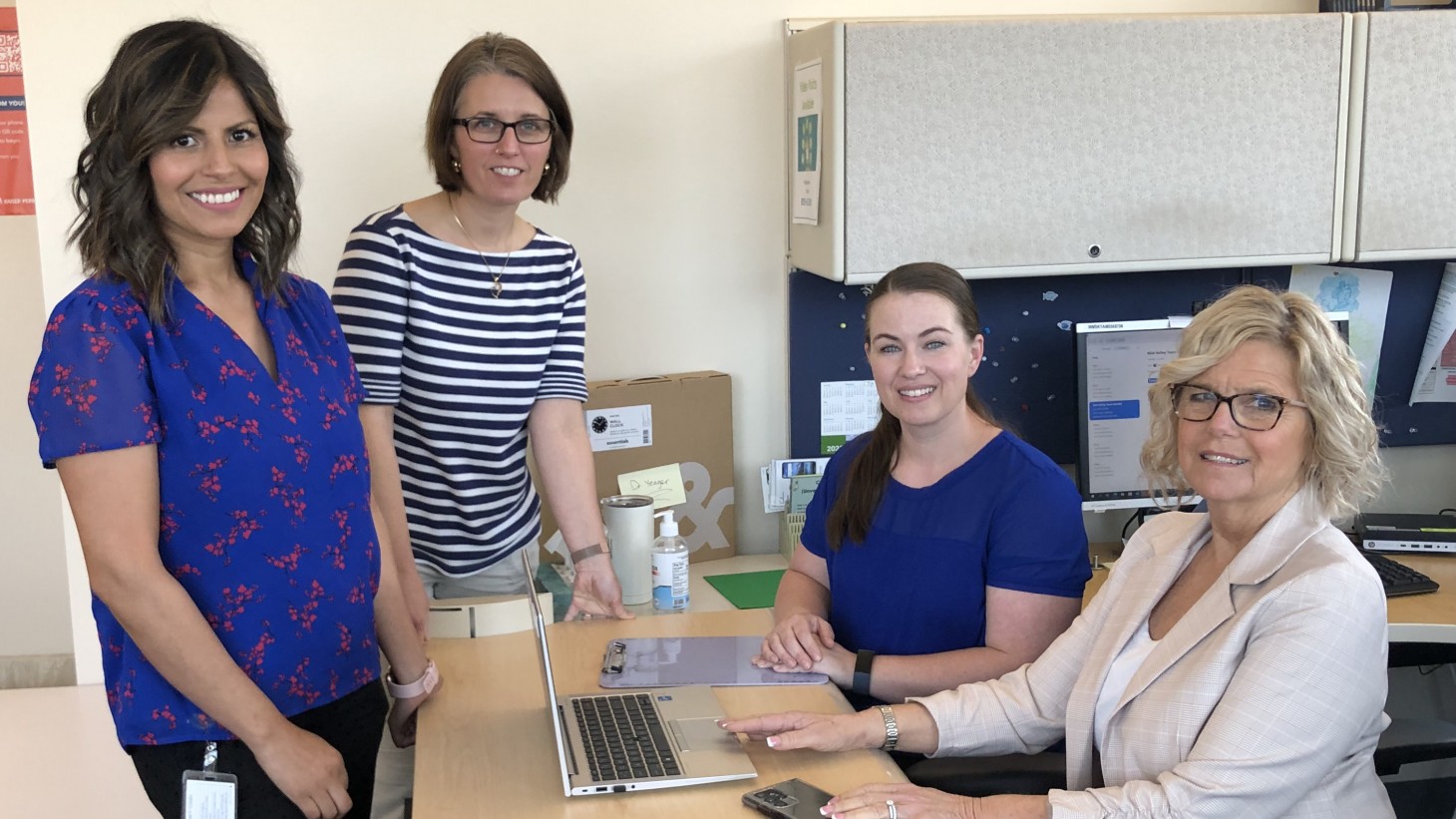
Left to right: Adriana Barrera, Patty Koker, Jenna Li and Carol Dugan of the Mid-Valley Addiction Medicine Team in Salem, Oregon. The team collects patient information on sexual orientation and gender identity to better understand members' challenges and medical needs.
Ask about Sexual Orientation, Gender Identity to Improve Care
To better understand their patients’ challenges and medical needs, the Mid-Valley Addiction Medicine team in Salem, Oregon, began asking about their sexual orientation, gender identity, and preferred pronouns. By knowing more about their patients’ backgrounds, team members can get a better idea of their patients’ health risks and better meet their health needs. They added the questions to the intake assessment for new patients, expanding team efforts to collect demographic information. Responses are entered into patients’ confidential electronic medical records, informing subsequent interactions with care providers. The project’s low risk-high reward has convinced other teams to adopt the practice, as well.
What can your team do: Demographic data can include sexual orientation, gender identity, race and ethnicity, ability status, military veteran status, and language proficiency. By collecting personal data from patients, your team can better identify and address health risks and needs that are unique to certain patient populations.
Here's What Worked
- Adding questions about sexual orientation, gender identity, and preferred pronouns to the intake form for new patients
- Asking patients about their backgrounds to better understand their unique health risks and challenges
- Spreading the practice to Northwest teams specializing in mental health and addiction medicine
expanded patient profiles in 2022, up from zero the previous year
Act Now — Tools to Help Your Team
Need an Idea? Borrow One
debug - term_args : 0
